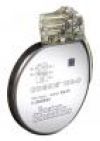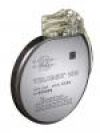
 Boston Scientific recently provided physicians with important product advisory information regarding a group of COGNIS™ CRT-D and TELIGEN™ ICD implantable defibrillators. This information includes some new follow-up advice for this identified group of devices that was manufactured between 2008 and 2010.
Boston Scientific recently provided physicians with important product advisory information regarding a group of COGNIS™ CRT-D and TELIGEN™ ICD implantable defibrillators. This information includes some new follow-up advice for this identified group of devices that was manufactured between 2008 and 2010.
A component in some COGNIS and TELIGEN devices has not performed as expected. This may shorten battery life and require early device replacement. These devices were designed with safety features that can detect this behavior and provide a physician with early warning of this problem if it were to occur.
Boston Scientific has recently introduced software that further improves the effectiveness of these safety features. For this reason, Boston Scientific has recommended that patients with devices in the identified group be scheduled for a clinic visit to upgrade their device with this new software. Once a device has been upgraded, normal device monitoring and follow-up can be continued.
Boston Scientific also recommends that physicians monitor affected devices using the LATITUDE Remote Patient Monitoring system between office visits as a way to enable earlier detection of this behavior.
Patient Guidance
 Here’s what patients can do:
Here’s what patients can do:
- Check to see if their device is included by entering their defibrillator model and serial number in the device lookup tool;
- Be sure and go to clinic device follow-up appointments as directed by their doctor, and
- As always, contact their heart clinic, or go to the hospital emergency room immediately if they hear beeping tones coming from their device.
This advisory is publicly available on Boston Scientific’s Product Performance Resource Center website, found at www.bostonscientific.com/ppr. Boston Scientific is committed to providing quarterly updates to this topic in the Product Performance Report.
Patients are welcome to contact Boston Scientific by calling 1.866.484.3268 and pressing “2” when prompted.
For Boston Scientific patient resources, visit LifeBeat Online.
SOURCE: Boston Scientific
